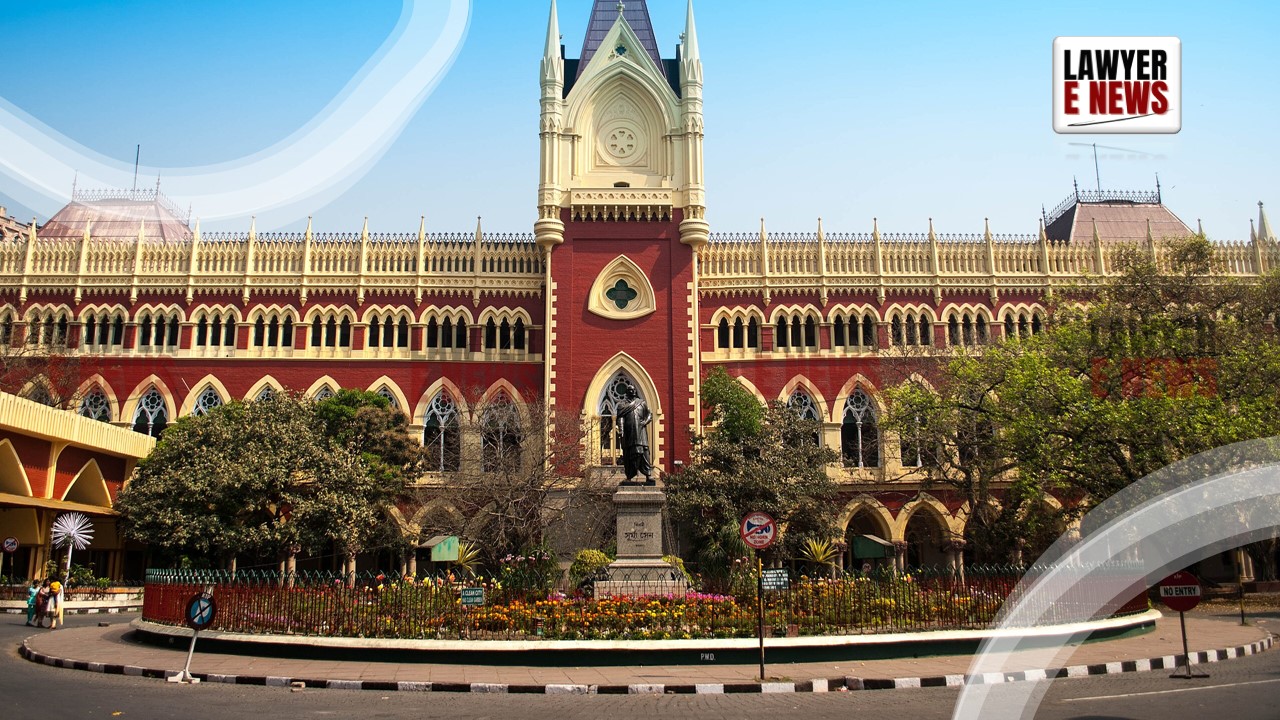-
by sayum
14 February 2026 2:22 PM



Calcutta High Court dismissed a writ petition filed by Dinesh Kumar Goyal seeking the mutation of a property in Salt Lake, Kolkata. The petitioner had failed to comply with the requirement to submit an affidavit declaring whether he or his family members owned additional land in the Kolkata Metropolitan Development Area (KMDA) as per the Urban Land (Ceiling and Regulation) Act, 1976. The court emphasized that public interest laws like the Urban Land Act are crucial for equitable land distribution and cannot be bypassed.
The petitioner, Dinesh Kumar Goyal, purchased a property at Plot No. 134, EC Block, Sector I, Salt Lake City, through a deed registered on August 30, 2007. He applied for mutation in his name on October 9, 2007. Despite several requests, his mutation application was not processed, prompting him to file a writ petition under Article 226 of the Constitution of India in December 2007.
In January 2008, the High Court directed the Principal Secretary, Urban Development Department, to consider Goyal's application. Following a hearing, the Principal Secretary issued an order on May 9, 2008, allowing the mutation, subject to the petitioner’s compliance with certain formalities, including submitting an affidavit declaring that neither he nor his family members owned other properties in the KMDA area. Goyal refused to submit the affidavit and filed the present writ petition, challenging the legality of the demand for such a declaration.
The core legal issue revolved around the petitioner’s refusal to file an affidavit confirming his compliance with the Urban Land (Ceiling and Regulation) Act, 1976. Goyal contended that such a declaration was unnecessary for properties larger than 4 cottahs in Sector I, Salt Lake, and that the government’s demand for the affidavit was arbitrary.
Justice Shampa Dutt (Paul) observed that the Urban Land Act requires a declaration of land ownership within the KMDA area to prevent the concentration of land in the hands of a few individuals. The petitioner was obligated under both the original lease and the deed of conveyance to comply with all legal requisites, including filing the affidavit.
"A litigant who comes before a court of justice to seek relief must come with clean hands. The petitioner’s reluctance to file the required affidavit raises serious concerns about his compliance with public interest laws."
The court also took note of an earlier writ petition filed by Goyal for the mutation of another property in Salt Lake, suggesting a potential violation of the Urban Land Ceiling Act, which restricts individuals from owning multiple properties in the area.
The court held that the Urban Land (Ceiling and Regulation) Act, 1976, is a piece of public interest legislation meant to ensure equitable distribution of land. Goyal’s failure to submit the affidavit, a mandatory legal requirement, justified the delay in processing his mutation request.
The court dismissed Goyal’s claim that the affidavit requirement was arbitrary, noting that his previous ownership of another property in Salt Lake warranted scrutiny.
The writ petition was dismissed, and all interim orders were vacated.
This judgment highlights the significance of compliance with public interest laws like the Urban Land Ceiling Act. The court underscored the importance of transparency and adherence to legal formalities in property transactions, especially in regulated urban areas like Salt Lake.
Date of Decision: October 3, 2024
Dinesh Kumar Goyal v. The State of West Bengal & Ors.
